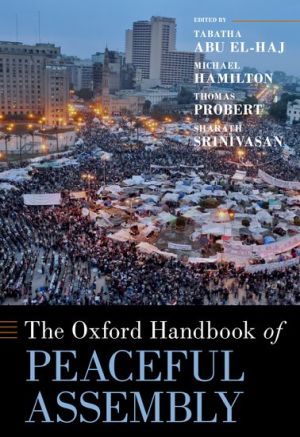We are now closed for the Christmas and New Year period, returning on Monday 5th January 2026. Orders placed during this time will be processed upon our return on 5th January.

Ours is an age of protest. Around the world, activists and movements believe in the potential of assembly to bring about important social and political change. The right of peaceful assembly has attracted growing policy and legal attention nationally and internationally as political actors are reminded of its power. Yet, this core civic freedom has received less scholarly exploration than the analogous rights of freedom of speech and association.
In this context, The Oxford Handbook of Peaceful Assembly examines assembly as a distinct political and social practice that lies uneasily at the heart of the modern state, at times posing as a threat to the political status quo. The Handbook brings together a diverse and multidisciplinary range of experts to provide a critical, international overview of the topic. It breaks new ground by interrogating key dilemmas relating to the value, scope, and legal protection of assembly, offering critically needed analysis on assembly qua assembly. Contributions from lawyers, political theorists, sociologists, anthropologists, and historians interrogate the importance of assembly, its value, its status as a legal right, and the boundaries of its legitimate regulation. Global in scope and richly grounded in history, this Handbook serves as an authoritative, comprehensive resource on the right of peaceful assembly.